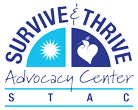June is Pride Month, a period dedicated to honoring and celebrating the diverse identities and experiences of the LGBTQ+ community. This annual observance has grown in significance, serving as a powerful reminder of the progress we have made toward equality, equity, and inclusion, while also highlighting the ongoing violence and other challenges LGBTQIA+ individuals face, including discrimination, misconceptions, and abuse by their peers, family members, and society. Traffickers target these vulnerabilities and that is why we need to keep a focus on supporting the LGBTQ community all year long.
Many cases of human trafficking in the LGBTQ community are unreported or under-investigated. We want to draw attention to experiences that are specific to this community and highlight ways we can come together to face these challenges.
These resources are aimed at helping LGBTQ trafficking victims and survivors. These include resources for LGBTQ youth who may be experiencing trafficking or know someone who is, for service providers and criminal justice professionals so they can learn more about how to promote healing, and for LGBTQ community members and advocates so they can become even stronger allies in the fight against human trafficking.
6 LGBTQ Resources for Pride Month:
“A lack of safe housing is a leading risk factor for sex trafficking. LGBTQ youth can be at an increased risk because they may face unique circumstances that lead to homelessness: being kicked out of their homes after coming out to their families; escaping bullying at school because of their gender identity or sexual orientation; or running away from abusive situations or discrimination within the child welfare system.”
“SAMHSA has a multi-pronged approach to addressing the behavioral health needs of LGBTQI+ individuals with, affected by, or at risk for mental health and substance use conditions, which builds on the President’s Executive Order on Advancing Equality for Lesbian, Gay, Bisexual, Transgender, Queer, and Intersex Individuals (EO 14075).”
“[In July of 2021] US Secretary of State Antony Blinken held a press conference to release the department’s annual Trafficking in Persons Report. As a gay, male survivor of sex trafficking, I listened. Blinken acknowledged that systemic racism makes people more vulnerable to human trafficking in the United States. The report included sections on racism and LGBTQ youth. For the first time, in the pages of a US government publication on human trafficking, I saw my story, the story of a gay child trafficked into the sex industry.”
STAC and the Big Bend Coalition Against Human Trafficking also had the honor of hosting a webinar with Jose Alfaro to further discuss the obstacles to justice faced by victims of human trafficking.
STAC: “A Cup of Justice” Restoring Human Trafficking Survivors through Restitution
“Victims of human trafficking face numerous obstacles to justice. Under federal law, mandatory restitution for trafficking survivors — compensation in a criminal trafficking case — is mandatory. But restitution is rarely ordered, and even more infrequently collected. Many survivors find their experience in the criminal justice system re-victimizing. They are forced to navigate complex victims’ compensation and criminal justice systems without legal representation.”
“Let’s get the word out that there are options available through the U.S. National Human Trafficking Hotline. Please download and share these cards with people in your networks and ask them to pass them along to people in theirs, so everyone knows there is somewhere to turn for support.”
POLARIS: Reaching Out for Help as an LGBTQ Person
“One of the most common questions we get here at Polaris is, “why don’t human trafficking victims just leave?” The answer is that it can be very difficult for victims to leave trafficking situations, either physically, emotionally, financially, or otherwise. And leaving a trafficking situation or recovering from such a traumatic experience is often too hard to do alone. Many victims require both immediate and long-term support and services in order to restore their freedom and rebuild their lives.”
“Like other populations, LGBTQ individuals who are trafficked have specific needs that must be addressed. It is important for service providers to understand their experience of violence and trauma, to understand the specific fears of rejection and discrimination, to educate all task force members about LGBTQ communities, and to ensure that they are treated with sensitivity and respect by providing training and consultations with members across the task force.”
“The LGBTQ+ community is a broad community that encompasses folks from various racial backgrounds, abilities, faiths, genders, socioeconomic statuses, and nearly every other identifiable way of grouping people. As we know, anyone can be a survivor of trafficking, including LGBTQ+ folks who exist across a spectrum of marginalization. The identities of queer people often become politicized, relegated, and a source for oppression.”
STAC is Here for Everyone
We encourage you to read these LGBTQ resources and articles and share them with your networks. The more people learn about human trafficking of LGBTQ people, the better equipped we’ll all be to strengthen our neighborhoods against traffickers.
Survive and Thrive Advocacy Center supports sex and labor trafficking survivors regardless of age, gender, immigration status, or faith, as well as those who are risk. STAC’s website also provides a rich array of information such as topical webinars ranging from CEU-approved training for healthcare professionals to how to protect children and youth from online sex trafficking and more, including our LGBTQIA Community page. Click here to learn more.




